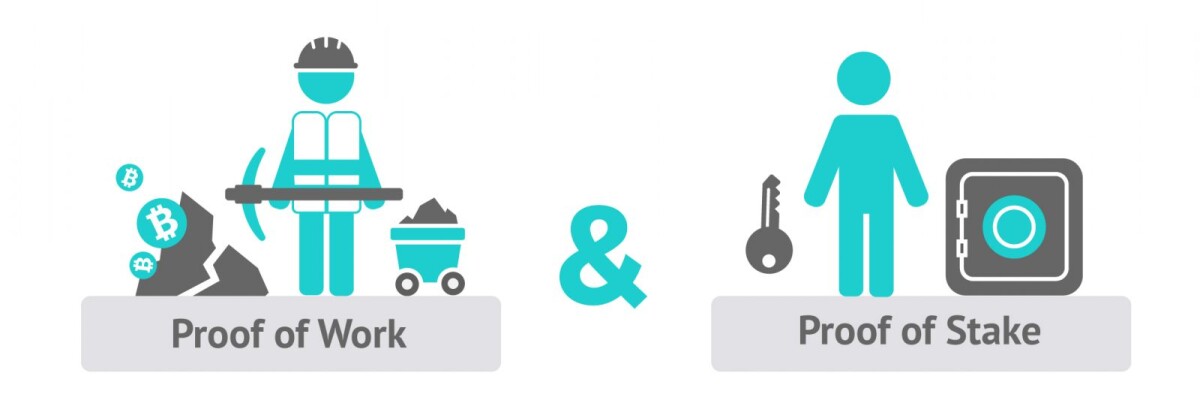If you are a cryptocurrency fan, you must have already heard about PoW и PoS systems. This article will explore the two concepts, identify differences between them and their pros and cons. PoW Mining is used...
If you are a cryptocurrency fan, you must have already heard about PoW и PoS systems. This article will explore the two concepts, identify differences between them and their pros and cons.
PoW
Mining is used to confirm transactions. All records about previous transactions are saved on the blockchain and a decentralised system to verify transactions is needed to confirm the authenticity of transactions.
PoW (Proof of Work) is a protocol to prevent cyber attacks in the network and distribute zero-result transactions.
Distributed consensus means that users do not need to be concerned about a transaction safety or involve third parties in it – it is enough to make sure that a transaction is recorded in the block. In other words, PoW is essential to solve complex calculations called mining.
For more clarity, we’ll describe the way the process goes.
- All unverified transactions are put together in a block.
- Miners verify the legality of transactions.
- The first miner who forms a block gets a reward.
- Information on transactions is finally recorded in the blockchain.
The key issue with the PoW is the resources as mining as requires huge computing power – as a result miners’ equipment goes out of service, they pay huge electricity bills and harm the environment. This eventually drives the miner’s community to become increasingly closed and limited contrary to the underlying principle of cryptocurrencies – decentralisation.
PoS
PoS (Proof of Stake) is another transaction verification system implemented in a slightly different way. Unlike PoW where miners get rewards depending on their computer power, in PoS the block creator is selected by a deterministic algorithm that analyses the number of coins the user owns, the period of time he has held them and some other factors.
In other words, it enables to make money virtually without any effort. We can compare this arrangement with an interest on a bank savings account – the more cryptocurrency you have in your account, the more money you make on transaction verification.
PoS is quicker and more efficient than PoW as anyone can become a miner. Another inherent advantage of the system is protection from the so-called 51 attack - a situation where a miner holds over half the computer power and thus gets control over the system.
PoS has its disadvantages, though. When it determines the direction of the network’s development, it awards additional votes to the coin’s major holders. So, many PoS-based floors are no longer owned by their creators. Such a situation is impossible in PoW.
In conclusion
Competition of protocols, projects and ideas certainly determines the future of internet, if not the entire humanity. At this juncture, no one can name the winner but one thing is certain – we, the ordinary people, are sure to benefit from this competition as it makes developers not to stand idle but keep on improving their products.
Share this with your friends!






Thomas Ziggel
is that the thing ETH wanna do?
romi hatoji
nice project